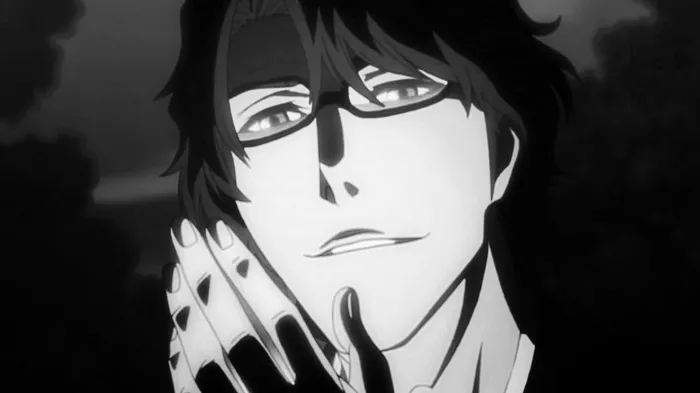Sosuke Aizen, the cunning and manipulative antagonist of the anime and manga series “Bleach,” is known for his complex schemes, deceptive tactics, and thirst for power. Among his many machinations, one of the most notable is his faked death, which left fans of the series questioning his motives and intentions. In this article, we delve into the depths of Aizen’s character to unravel the mystery behind his decision to fake his death, exploring the factors that drove his actions and the impact of his deception on the “Bleach” universe.
The Enigmatic Aizen: A Brief Overview
Before we explore the reasons behind Aizen’s faked death, let’s take a moment to revisit the character himself and his role in the “Bleach” series. Sosuke Aizen is a former captain of the Gotei 13, the organization of Soul Reapers responsible for protecting the Soul Society and maintaining balance in the afterlife. Initially portrayed as a respected and charismatic leader, Aizen’s true nature is revealed as the series progresses, unveiling his ambition for power and his willingness to manipulate others to achieve his goals.
Throughout the “Bleach” series, Aizen orchestrates numerous schemes and conspiracies, including the betrayal of his fellow Soul Reapers, the creation of the Arrancar, and his quest to obtain the Hogyoku, a powerful artifact capable of transcending the boundaries between Shinigami and Hollows. Aizen’s cunning intellect, mastery of illusion, and unwavering confidence make him a formidable adversary for protagonist Ichigo Kurosaki and his allies, leading to epic battles and dramatic confrontations throughout the series.
Unraveling the Mystery: Why Did Aizen Fake His Death?
Aizen’s decision to fake his death occurs during the “Fake Karakura Town” arc of the “Bleach” series, following his defeat at the hands of Ichigo and his allies. After being seemingly killed by Ichigo’s final Getsuga Tensho attack, Aizen’s body dissolves into particles of light, leaving behind only his shattered Zanpakuto, Kyoka Suigetsu. However, it is later revealed that Aizen had orchestrated the entire event, using his mastery of illusion to deceive his enemies and create the illusion of his demise.
So, why did Aizen fake his death? The answer lies in his insatiable thirst for power and his desire to transcend the limitations of his existence. Throughout the series, Aizen seeks to achieve a state of evolution beyond that of a Soul Reaper, aspiring to become a god-like being capable of reshaping reality to his will. Faking his death allows Aizen to escape from the confines of the Soul Society and continue his pursuit of ultimate power without interference from his enemies.
The Illusion of Weakness: Manipulating Perceptions
By faking his death, Aizen creates the illusion of weakness and vulnerability, lulling his enemies into a false sense of security while he plots his next move. In doing so, Aizen manipulates the perceptions of those around him, exploiting their assumptions and expectations to his advantage. By appearing to be defeated and powerless, Aizen can bide his time and wait for the opportune moment to strike, catching his enemies off guard and seizing control of the situation.
Moreover, faking his death allows Aizen to remove himself from the immediate threat of his enemies and regroup in secret, devising new strategies and alliances to further his goals. By feigning his demise, Aizen creates uncertainty and doubt among his adversaries, sowing discord and confusion within their ranks as they struggle to comprehend the true nature of his deception.
A Calculated Gamble: Risks and Rewards
While faking his death affords Aizen certain advantages, it also carries inherent risks and consequences. By disappearing from the battlefield, Aizen forfeits the opportunity to eliminate his enemies directly and assert his dominance over the Soul Society. Instead, he must rely on subtler methods of manipulation and coercion to achieve his objectives, risking exposure and defeat if his plans are discovered.
Furthermore, faking his death requires Aizen to relinquish control over the narrative of his own demise, allowing others to shape the perception of his legacy and influence the course of events in his absence. By disappearing from public view, Aizen becomes a symbol of uncertainty and speculation, with rumors and theories circulating about his fate and intentions.
The Legacy of Deception: Impact on the “Bleach” Universe
Aizen’s decision to fake his death reverberates throughout the “Bleach” universe, shaping the course of events and influencing the actions of his allies and enemies alike. The revelation of Aizen’s deception serves as a wake-up call for the Soul Society, forcing its leaders to confront the reality of Aizen’s continued existence and the threat he poses to their world.
Moreover, Aizen’s faked death serves as a testament to his cunning intellect and mastery of illusion, solidifying his reputation as one of the most formidable adversaries in the “Bleach” series. By outwitting his enemies and evading capture, Aizen demonstrates his ability to manipulate the perceptions of those around him and orchestrate events to his advantage.
Conclusion
The decision to fake his death represents a calculated gambit on Aizen’s part, driven by his insatiable thirst for power and his desire to transcend the limitations of his existence. By creating the illusion of his demise, Aizen manipulates the perceptions of his enemies and allies alike, seizing control of the narrative and shaping the course of events in his favor. While the risks of his deception are considerable, Aizen’s mastery of illusion and manipulation allows him to navigate the complexities of the “Bleach” universe with ease, leaving a lasting impact on the series and its characters. As fans continue to unravel the mysteries of Aizen’s schemes and machinations, his faked death stands as a testament to his cunning intellect and his unwavering determination to achieve his goals at any cost.


